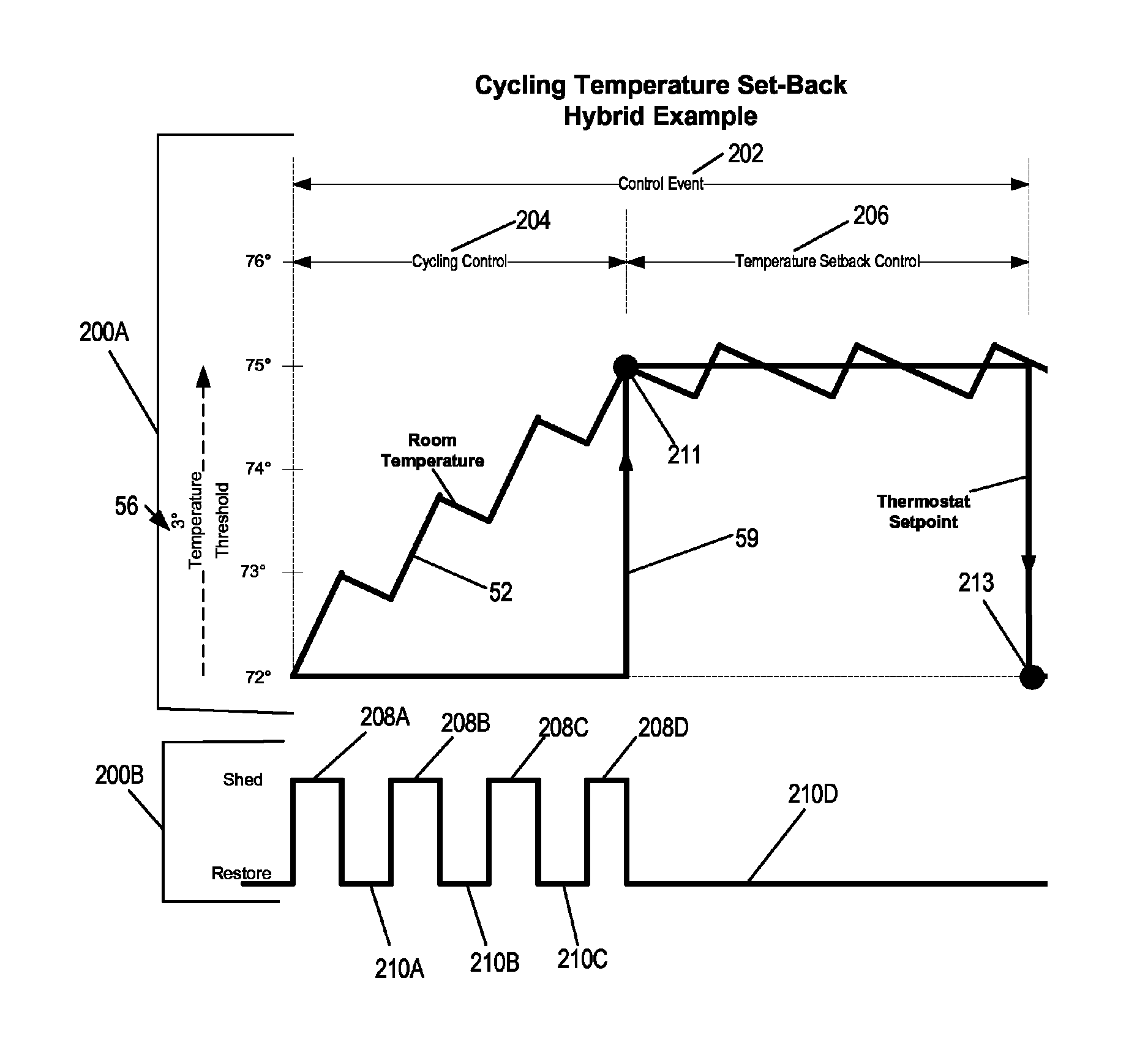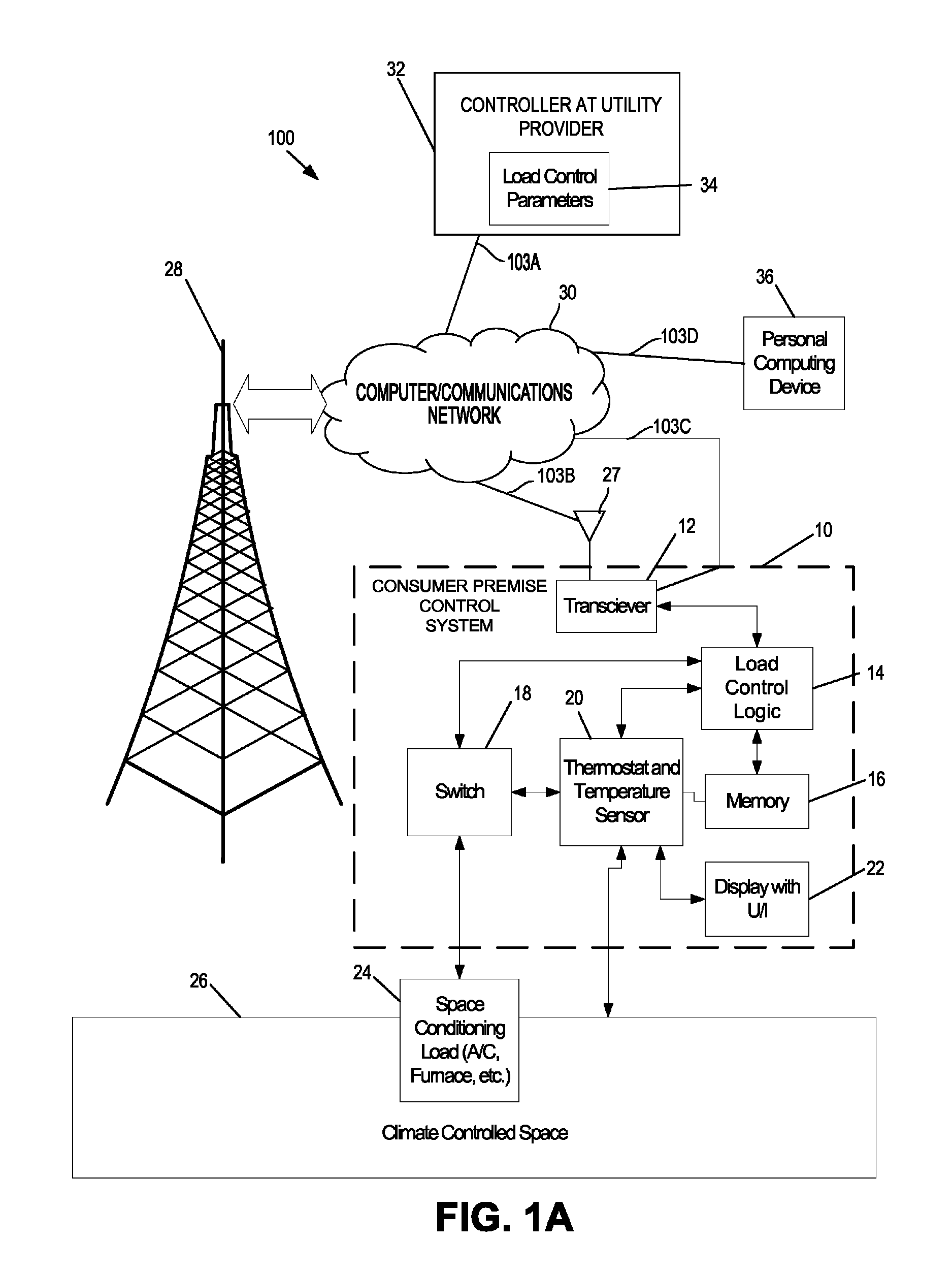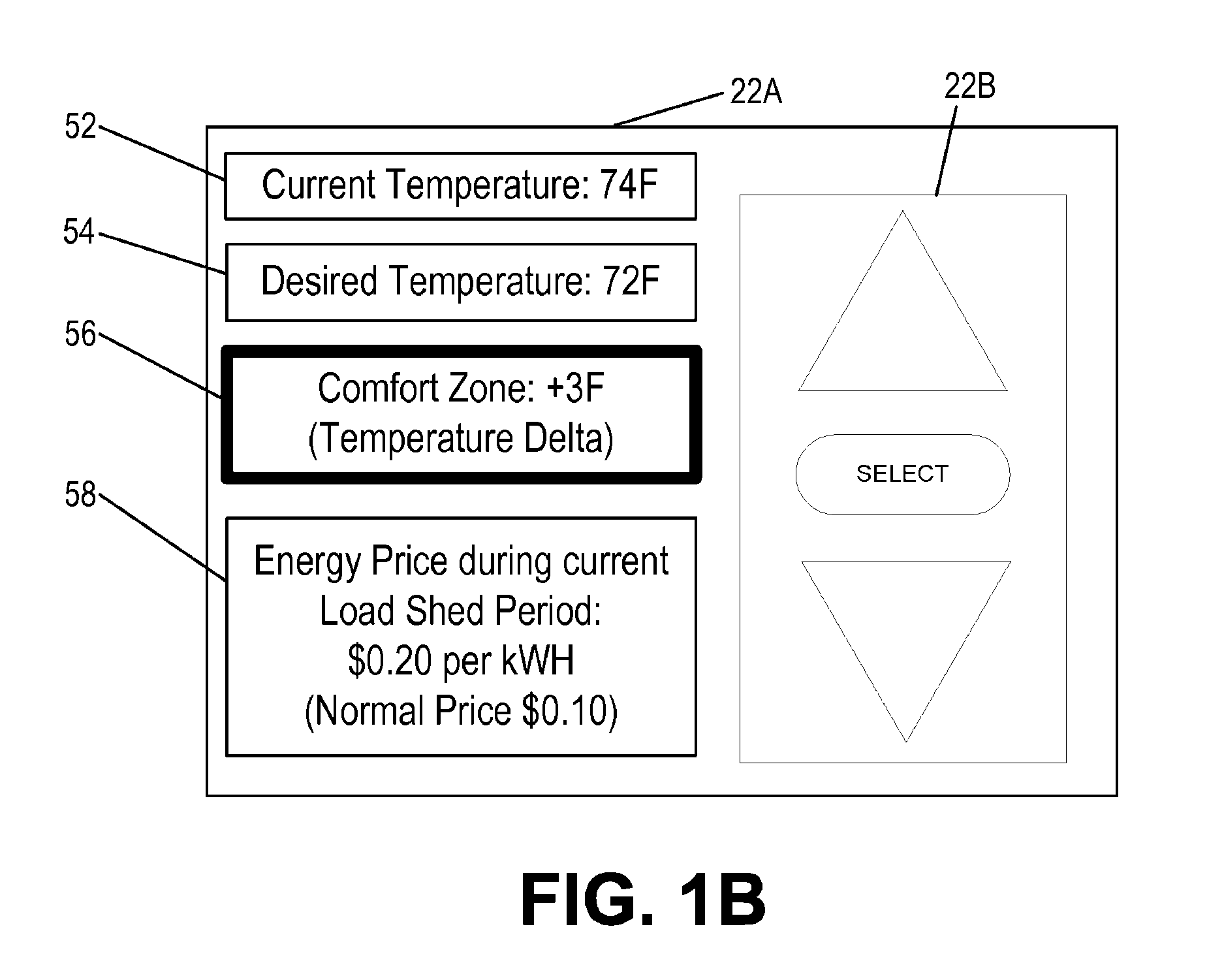System and method for establishing local control of a space conditioning load during a direct load control event
a technology for establishing local control and space conditioning, which is applied in the direction of instruments, heating types, static/dynamic balance measurement, etc., can solve the problems of increasing the cost of customer acquisition, and increasing the indoor temperature to a level that is uncomfortable for the customer, so as to restore the local control of the switch
- Summary
- Abstract
- Description
- Claims
- Application Information
AI Technical Summary
Benefits of technology
Problems solved by technology
Method used
Image
Examples
Embodiment Construction
[0024]Referring initially to FIG. 1A, a diagram of a system 100 for establishing local control during a direct load control program is illustrated. The system 100 may include a customer premise control system 10, a space conditioning load 24, a climate controlled space 26, a wireless communications tower 28, a communications network 30, a controller 32 at a utility provider, and a personal computing device 36. Exemplary wireless communication networks that may employ wireless communications towers 28 or wireless environments in general include, but are not limited to, Advanced Metering Infrastructure (AMI) networks, Home Area Networks (HANs), any combination of the above, and other similar wireless communication networks. Many of the system elements illustrated in FIG. 1A are coupled via communications links 103A-D to the communications network 30.
[0025]The links 103 illustrated in FIG. 1A may comprise wired or wireless links. Wireless links include, but are not limited to, radio-fr...
PUM
 Login to View More
Login to View More Abstract
Description
Claims
Application Information
 Login to View More
Login to View More - R&D
- Intellectual Property
- Life Sciences
- Materials
- Tech Scout
- Unparalleled Data Quality
- Higher Quality Content
- 60% Fewer Hallucinations
Browse by: Latest US Patents, China's latest patents, Technical Efficacy Thesaurus, Application Domain, Technology Topic, Popular Technical Reports.
© 2025 PatSnap. All rights reserved.Legal|Privacy policy|Modern Slavery Act Transparency Statement|Sitemap|About US| Contact US: help@patsnap.com



